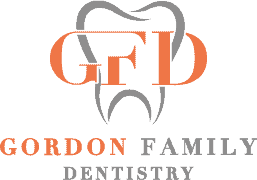Dental crowns are like a hat for a tooth, providing a protective covering for the vulnerable root and enamel. Damaged teeth can benefit from dental crowns, restoring their appearance and functionality.
This article will explore the dental crown placement process, the types of crowns available, how long they last, and the benefits they offer. Alternatives to crowns will also be discussed.
What is a Dental Crown?
A dental crown is a restoration that encases the entire visible portion of a tooth, typically made from ceramic or porcelain. There are several types of crowns, including permanent crowns, ceramic crowns, metal crowns, and composite resin.
Permanent crowns are usually made of porcelain, ceramic, or metal and are designed to be a lasting restoration for decayed teeth. Ceramic crowns are a type of crown that is made from porcelain that is fused to metal, and metal crowns are made from a variety of metals, such as gold, chrome, or nickel. Composite resin is a type of crown made from a mixture of plastic and glass and designed for temporary restoration.
Dental crowns can be used for various reasons, including restoring decayed teeth, protecting weak teeth from further damage, and strengthening teeth weakened by root canal therapy. Crowns can also be used to restore the appearance of a tooth that is severely discoloured or badly shaped. The type of crown used will depend on the individual case and the dentist’s recommendations.
Dental crowns are a great way to restore damaged teeth and improve the smile’s overall appearance. By encasing the entire visible portion of the tooth, crowns can provide protection and strength while also improving the aesthetic of the smile. With the variety of materials used in crowns, dentists can create a strong and beautiful restoration.
What is Involved in the Placement Process?
The placement of a restoration to cover a damaged tooth requires specialized skills and techniques. A dental crown is a prosthetic tooth restoration designed to fit over the entire tooth, from the root to the crown, providing strength and stability to weak teeth.
The dental crown procedure typically begins with examining the tooth to assess the extent of damage. If the damage is severe, root canal treatment may be necessary before the crown can be placed. Alternatively, a dental implant or bridge may be used as an alternative restoration if the tooth cannot be saved.
Once the tooth is prepared for restoration, a temporary crown may be placed while the permanent crown is being made. The temporary crown must be removed and a final impression taken to ensure a proper fit. The permanent crown may be made of various materials, including porcelain, gold, or stainless steel. For those seeking a more aesthetically pleasing option, same-day crowns are available that are made from porcelain or composite resin.
Once the dental lab crafts the permanent crown, it will be fitted and secured over the natural tooth. The crown is then adjusted to ensure a comfortable and secure fit. The entire dental crown procedure typically takes two to three appointments to complete.
A dental crown can last up to 15 years with proper care and maintenance.
What Types of Dental Crowns are Available?
Various materials can be used to fabricate a dental crown, ranging from porcelain and gold to stainless steel and composite resin. Each of these crown types has its own individual benefits and drawbacks.
For example, porcelain crowns are highly durable and aesthetically pleasing but may cause an allergic reaction in some patients. Gold alloys are highly resistant to gum disease but may be too expensive for some patients. Composite resin crowns are inexpensive but may not last as long as others. All-ceramic crowns have become increasingly popular due to their natural-looking appearance but may be more prone to staining and discolouration over time. Zirconia crowns are also available and are a great option for those looking for a strong and durable crown that is aesthetically pleasing.
No matter the type of crown chosen, each crown is custom-made to fit the individual tooth and is placed with the help of dental cement. The dental crown is a tooth-shaped cap placed over the damaged tooth to protect it from further harm and restore its original appearance. Crowns can repair cracks, chips, discoloured teeth, and more.
With proper care and maintenance, dental crowns can last many years and help transform damaged teeth into beautiful, healthy smiles.
How Long Do Dental Crowns Last?
A dental crown is longevity depends on several factors, such as the type of material used, the quality of the initial placement, and the patient’s oral hygiene habits. To ensure a long-lasting dental restoration, the patient should receive proper dental care and digital impression and choose the right type of crown. Dental crowns are designed to be a long-term solution, rather than a temporary measure.
Types of dental crowns may include metal alloys, porcelain fused to metal, all-resin, all-ceramic or all-porcelain materials. These various materials may be used in combination with one another to create a customized crown. Additionally, the patient may need to undergo a root canal before receiving a crown. This procedure removes any infection and prepares the tooth for crown placement.
Once the crown is placed, it protects the tooth’s natural enamel and helps prevent further damage. It is also a suitable solution for teeth that are severely decayed or cracked. The crown reinforces the weakened tooth structure and helps it to last longer. The patient must practice good oral hygiene habits to maintain the health of the tooth, such as brushing and flossing daily and visiting the dentist regularly.
To ensure a long-term, lasting result, selecting a quality dental restoration, such as a tooth crown, that is custom-made to fit the patient’s specific needs is important. A dental crown can last for many years with proper care and maintenance.
- Custom crowns are designed to fit the patient’s unique needs
- The type of material used will affect the longevity of the crown
- Root canal treatment may be necessary prior to crown placement
- Good oral hygiene habits must be practised to maintain the health of the crown
What are the Benefits of Dental Crowns?
Dental crowns offer a range of benefits to individuals with damaged teeth. Proper care and regular visits to a dentist are essential for preserving oral health. Dental crowns are often the best solution for teeth that are severely fractured, decayed, discoloured, or otherwise damaged. Resin crowns, made from a composite material, are a popular choice as they are strong and often require less tooth preparation. Furthermore, they are less likely to cause an infection than metal crowns.
A dental crown protects a tooth is chewing surface, as it allows for a more even distribution of force when chewing. Additionally, a digital scanner can create a crown that perfectly fits the damaged tooth’s shape, allowing for a more natural appearance. This is especially beneficial if the crown is needed for a front tooth.
The benefits of dental crowns cannot be overstated. Not only do they provide a layer of protection for damaged teeth, but they also reduce the risk of infection and help to prevent further damage. Furthermore, they can help improve discoloured teeth’ appearance, allowing for a more natural look. Dental treatments such as crowns can also improve the overall health of the mouth and teeth.
What are Alternatives to Crowns?
Alternatives to dental crowns exist for individuals seeking to restore damaged teeth. Prepared teeth can be restored in many ways depending on the amount of damage and the desired outcome.
For loose crowns, temporary tooth cement can adhere the crown back into place. For sticky foods, adjacent teeth can be protected by covering them with a healthy tooth.
Normal teeth can be improved by replacing the crown with a more cosmetically pleasing gold crown, metallic crowns, or full ceramic or all-porcelain crowns, which require special care due to their natural tooth structure being covered by a metal structure.
Partial crowns, ceramic or porcelain crowns, and resin dental crowns can also be alternatives. Acrylic resin crowns are ideal for large fillings, while all-porcelain crowns or alloy crowns can be used for crowns that need to blend in with the teeth.
For a more permanent solution, cast gold crowns are available.
Regardless of the treatment plan, an individual should consider all alternative treatments and alternative treatment options before deciding on the best solution for their specific needs. Each alternative offers different benefits and drawbacks that should be taken into account.
Key Takeaways
Dental crowns are a popular, effective way to protect and restore damaged teeth. They can be made from various materials, depending on the patient’s needs, and can last for up to 15 years.
The placement process is relatively painless and straightforward. The benefits of crowns include improved appearance, bite and chewing function, and overall oral health. On average, 80% of people who receive dental crowns report improved oral health and satisfaction with the results.
Dental crowns are a great option for those looking to repair and restore their teeth.
If you’re looking for an experienced and reliable dentist to help restore and protect your teeth with dental crowns, look no further than Gordon Family Dentistry in Gordon, NSW. Our experienced and qualified staff are here to help you make the best decisions for your oral health and ensure you receive the highest quality of care. We look forward to hearing from you and helping you achieve the beautiful and healthy smile you deserve.

